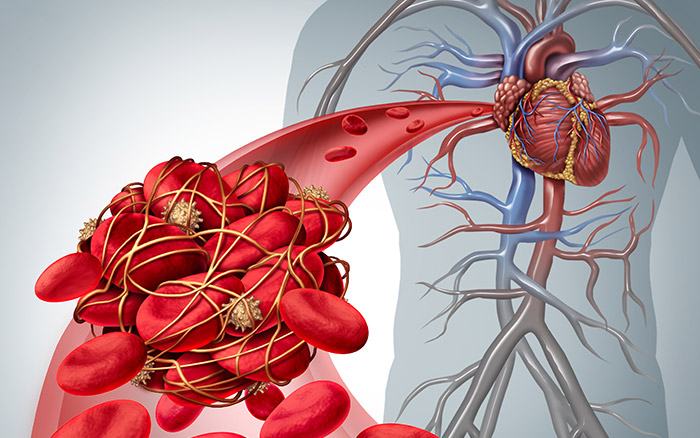- Home
- About Us
- Advanced Testing
- Nutrition & Self-Care
- Further Learning
- New Member Info
- Contact
Factor II (prothrombin) is a protein produced by the liver to help the blood clot when needed, but people who have a mutation in this gene produce more prothrombin than is normal, leading to an increased propensity for blood clots. This genetic test identifies individuals with defects in this clotting factor, which can assist the medical provider in determining which patients need more aggressive thrombosis prevention measures. Such therapy can prevent life-threatening clots, especially those that travel from veins in the legs (called a deep vein thrombosis or DVT) to the lungs (called a pulmonary embolism or PE).

Women who carry a Prothrombin mutation have a 16-fold increased risk of developing a blood clot when taking estrogen-containing oral contraceptives. And though smoking will exacerbate the risk of developing a blood clot in any patient, that risk is multiplied in patients with a Prothrombin mutation.
In order to lower the risk of developing a blood clot, patients need to stay hydrated and remain mobile. Long periods of inactivity can exacerbate risk, so when faced with long car rides, trans-continental flights, or illnesses that confine one to the bed, patients should make an effort to get up and walk around every couple of hours (or at least consider wearing compression stockings during these times to aid circulation). These patients may also benefit from daily aspirin therapy.
Patients with this gene variant should notify all of their medical providers that they are carriers (particularly if they are pregnant or about to have surgery), because more aggressive anticoagulant therapy and monitoring may be necessary in certain circumstances.
Read more about Prothrombin Mutation HERE
Do something today for a better tomorrow!
Make an appointment now for advanced testing. We are here to help.
REFERENCES
1 – DeStefano V, Rossi E. Testing for inherited thrombophilia and consequences for antithrombotic prophylaxis in patients with venous thromboembolism and their relatives. Thromb Haemost. 2013 Oct;110(4):697-705.